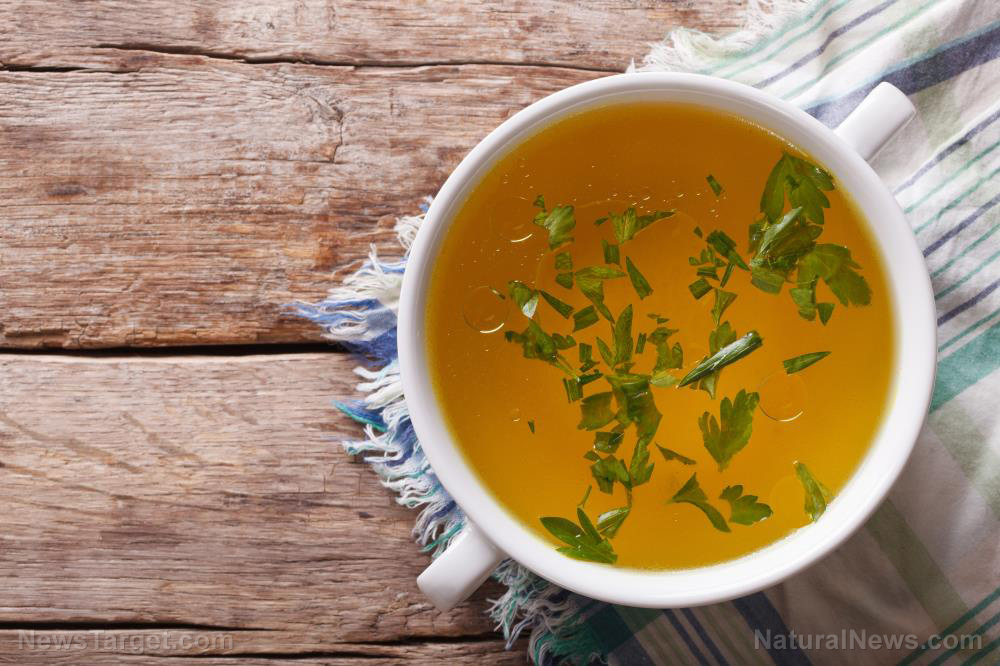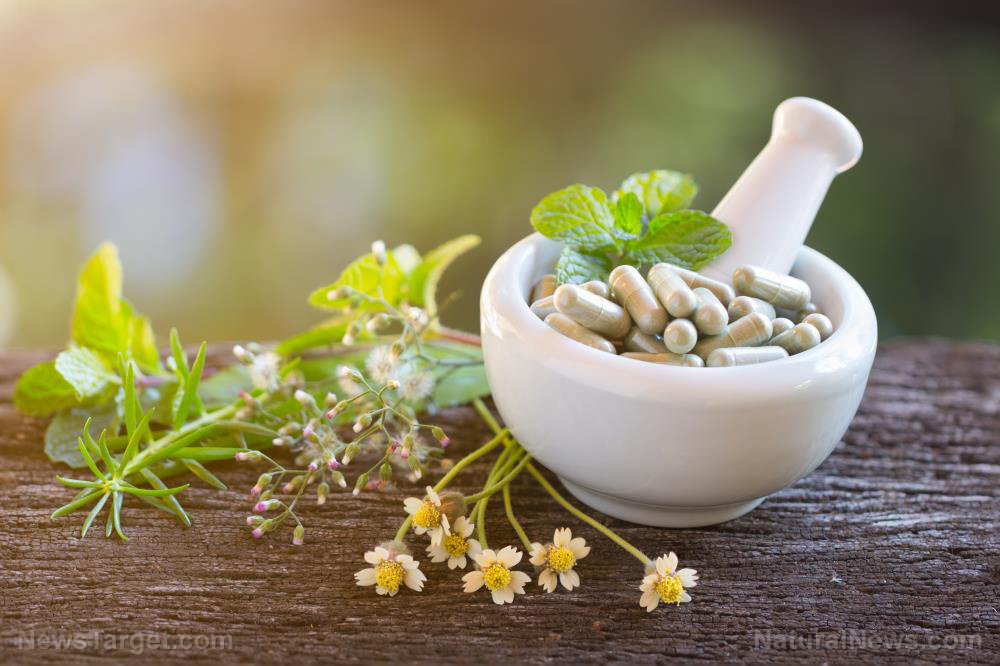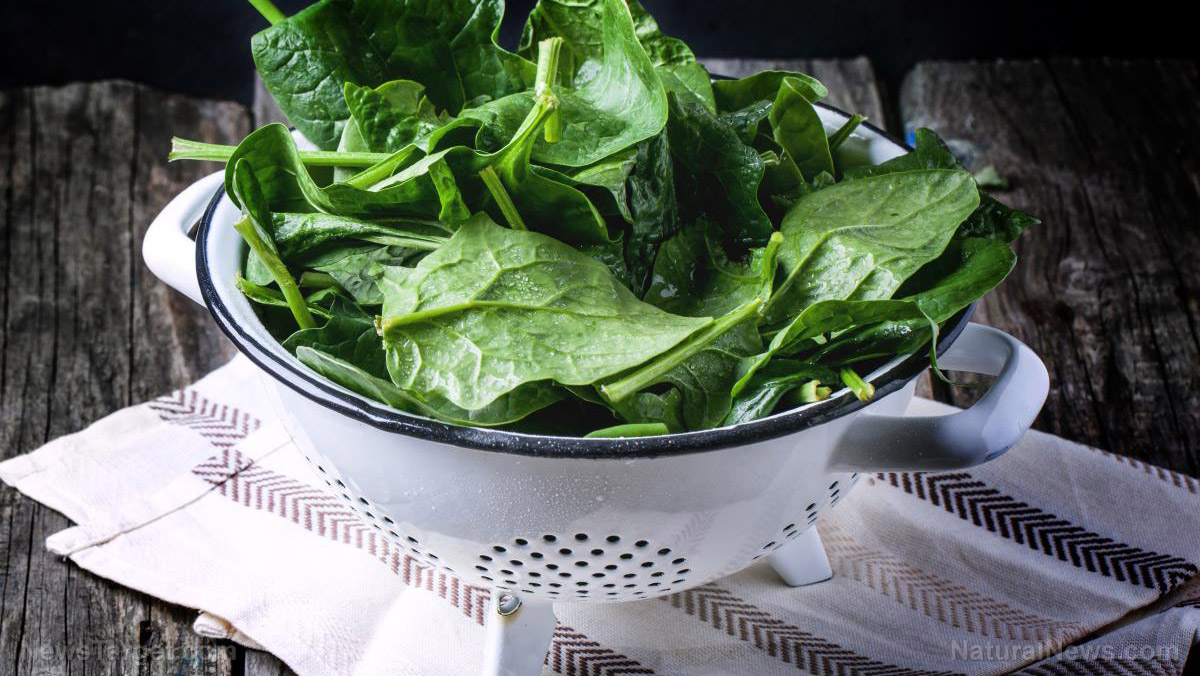Bitter herbs can alleviate symptoms of GERD
05/29/2019 / By Zoey Sky

While some herbs are used in different cuisines to enhance the flavor of certain dishes, other herbs are used medicinally to treat minor complaints like colds or nausea. According to researchers, bitter herbs and vegetables can be used to treat the symptoms of conditions like gastroesophageal reflux disease (GERD).
The National Institute of Diabetes and Digestive and Kidney Diseases reported that in 2010, about 4.7 million people were hospitalized for GERD. The good news is some studies suggest that bitter herbs can help naturally improve digestion and treat digestive conditions like GERD.
The medicinal benefits of bitter herbs and vegetables
The bitter compounds in plants help protect them from being consumed by insects and animals. Humans and various animals “instinctively avoid bitter-tasting foods because they are equated with poisonous qualities.”
In traditional medicine, herbal cures like “bitters,” which refers to extracts from bitter herbs and spices, are used to boost energy, detoxify the body, and improve digestive health. Bitter herbs are also used to address different conditions like Candida overgrowth, inflammatory conditions (e.g., asthma and eczema), and thyroid problems.
Plant compounds classified as “bitter” include alkaloids, iridoids, lactones, sesquiterpenes, and many volatile oils. The sharp, biting taste of certain bitter herbs indicate that they are full of disease-fighting flavonoids and antioxidants.
While some naturally bitter plants are poisonous, there are a lot of edible bitter greens, herbs, and spices with impressive health benefits. (Related: A natural approach to treating GERD.)
When you consume bitter greens, you can reap their health benefits the moment they contact your tongue. The process begins with the release of gastrin. This hormone stimulates the gallbladder, intestines, liver, pancreas, and stomach into starting the process of digestion.
The bitter tastes also promote the release of saliva that helps break down carbohydrates in the mouth. Additionally, bitter tastes trigger the release of hydrochloric acid in the stomach. The acid breaks down proteins and fats, and it also kills pathogens and microbes that may cause food poisoning.
Here are some additional benefits of bitter greens:
- Bitters trigger the release of pepsin and other protein-digesting enzymes that stimulate the release of bile from the liver. Bile breaks down fats and boosts the absorption of the fat-soluble vitamins A, D, E, and K. Since bile also neutralizes toxins and clear fat and cholesterol from the liver, bitters can help address nonalcoholic fatty liver disease.
- Bitters also help the pancreas by helping break down and absorb nutrients, which can prevent gas and bloating. Additionally, bitters help the pancreas produce insulin, the hormone that regulates blood sugar.
- Bitters stimulate the smooth muscle of the intestine, which promotes better gastric emptying.
Bitter herbs and your digestive health
If you suffer from GERD, consider adding more bitter greens to your diet to relieve your symptoms. Consuming bitters helps move food along in the intestines, and this helps prevent stomach contents from “backing up” into the esophagus.
Bitters also have a tonic (or tightening) effect which helps contract the esophageal sphincter muscle to minimize painful GERD symptoms.
Bitter herbs can also help address “leaky gut syndrome” or increased intestinal permeability, which occurs when tight junctions of the intestinal walls loosen. This can allow dangerous substances like bacteria, toxins, and undigested food particles to enter your bloodstream. As these harmful substances reach your bloodstream, they can trigger allergic reactions, inflammation, or autoimmune disease.
Bitters can also repair damage in the intestinal wall and minimize the inflammatory response caused by leaky gut syndrome.
Consuming bitters helps relieve food allergies, which occur when undigested proteins react with immune cells. Bitters help complete the breakdown of proteins, and they reduce the damage caused by an inflammatory response.
According to a review published in the journal Proceedings of the Natural Academy of Sciences, bitter compounds can potentially be used to address GERD and gastric ulcers.
In a separate study published in the journal Molecules, researchers determined that bitter herbal teas made from Siberian gentians, which contained iridoid, are a natural remedy for digestive disorders like heartburn and nausea.
To enjoy the health benefits of bitter compounds, add the following vegetables to your diet:
- Arugula
- Chicory
- Endive
- Mustard greens
- Radicchio
These leafy greens are also cruciferous vegetables full of sulforaphane, a potent bitter constituent with anti-inflammatory and anticancer effects. Bitter greens also contain nitrites that promote heart health by improving the production of nitric oxide, which can help lower your blood pressure. Bitter vegetables also have chlorophyll that can bind to toxins and flush them from the body.
Add bitter greens to omelets or scrambled eggs, salads, sandwiches, soups, or wraps. Alternatively, greens can be used to make nutrient-rich smoothies. Some spices, such as bay leaves, cinnamon, oregano, rosemary, sage, thyme, and turmeric, also have beneficial bitter compounds.
If you use bitters in the form of tinctures made from bitter herbs and spices, take them at least 30 minutes to one hour before eating.
Before adding bitter greens or tinctures to your diet, consult an integrative physician to determine if they will interact with medication that you are currently taking for existing conditions.
To boost your digestive health, eat fresh, organic bitter greens regularly.
Sources include:
Tagged Under: acid reflux, bitter herbs, digestion, digestive health, folk medicine, functional foods, Gastroesophageal reflux disease, GERD, grocery cures, gut health, heartburn, Herbs, indigestion, leafy green vegetables, leafy greens, natural cures, natural remedies, nutrition, prevention, remedies, vegetables
RECENT NEWS & ARTICLES
Digestion.News is a fact-based public education website published by Digestion News Features, LLC.
All content copyright © 2018 by Digestion News Features, LLC.
Contact Us with Tips or Corrections
All trademarks, registered trademarks and servicemarks mentioned on this site are the property of their respective owners.
















